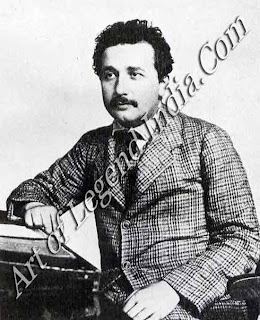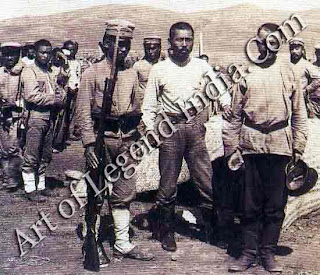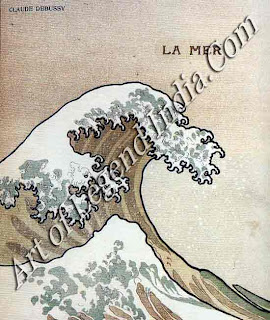In
1905, Munch's native Norway won independence from Sweden. In the same year
Russia suffered catastrophic defeats at the hands of Japan and was plunged into
a revolutionary ferment. Meanwhile German blustering over French interests in
North Africa provoked the first Moroccan crisis.
Although
Norway and Sweden had been united by the same monarch since 1814, the former
still retained their own parliament (the Storting) to govern internal affairs.
A growing national consciousness echoed by an explosive literary revival at the
end of the 19th century led to the Storting's demand for Norwegian political
autonomy. An act was passed setting up a separate consular service which was
repudiated by King Oscar II. In June 1905, the Storting declared 'the union
with Sweden dissolved as a result of the King ceasing to function as Norwegian
King', confirmed by a plebiscite in August. War seemed imminent for a time, but
in October a formal separation was negotiated. In December, Prince Charles of
Denmark became Norway's new king as Haakon VII.

Russia
had been at war with Japan over the control of Manchuria and Korea since 1904.
On 1 January the naval base of Port Arthur (leased from China by the Russians)
fell to the Japanese after a ten-month siege. Three months later the Russian
army was defeated in a hard-fought battle at Mukden.
BATTLE OF TSUSHIMA
The
final blow was struck in May when the Russian Baltic fleet arrived in the
straits of Tsushima, between Korea and Japan, after a journey halfway round the
world, only to be utterly destroyed by the Japanese Imperial Navy led by
Admiral Togo. Both victor and vanquished were exhausted by the war and ready
for peace. The terms of the Treaty of Portsmouth in September 1905 were
relatively moderate. Russia gave up Port Arthur and the southern half of Sakhalin
Island and recognized Japan's predominant position in Korea. The two powers
later agreed to exercise equal influence in Manchuria.

Defeat
further discredited the already unpopular Tsarist regime. The ensuing '1905
Revolution' began on 22 January with 'Bloody Sunday', when a peaceful
demonstration of 150,000 workers and their families was fired on outside the
Winter Palace. About a thousand were killed and many more wounded. Strikes,
demonstrations and peasant risings swept the land, culminating in October, when
sailors of the battleship Potemkin mutinied and 200,000 urban workers organized
their own representative body, the St Petersburg soviet, soon to be dominated
by the fiery personality of 25-year-old Leon Trotsky. The new Prime Minister,
Sergei Witte, persuaded the Tsar that the token consultative body (Duma) he had
set up was insufficient and wider promises of reform were made.
 The
careful balance of European power threatened to be undermined during this year
by Kaiser Wilhelm II's blustering attempts at world power status. His personal
visit to Tangier was an attempt to block the Anglo-French entente cordiale
whereby France recognized Britain's position in Egypt while Britain
acknowledged French interests in Morocco. The Kaiser's tacit recognition of
Moroccan independence only succeeded in strengthening the Anglo-French
alliance. Another blow fell when the treaty agreed between Kaiser Wilhelm and
the Tsar at Bjorko in Finland later that year was repudiated by ministers on
both sides as it conflicted with the terms of the existing Franco-Russian
alliance.
The
careful balance of European power threatened to be undermined during this year
by Kaiser Wilhelm II's blustering attempts at world power status. His personal
visit to Tangier was an attempt to block the Anglo-French entente cordiale
whereby France recognized Britain's position in Egypt while Britain
acknowledged French interests in Morocco. The Kaiser's tacit recognition of
Moroccan independence only succeeded in strengthening the Anglo-French
alliance. Another blow fell when the treaty agreed between Kaiser Wilhelm and
the Tsar at Bjorko in Finland later that year was repudiated by ministers on
both sides as it conflicted with the terms of the existing Franco-Russian
alliance.
A
variety of other events characterized 1905. It was the year the great
actor-manager Sir Henry Irving, whose knighthood set the seal of respectability
on the theatre, died and the Swedish film star Greta Garbo was born. The
artists Schmidt-Rottluff and Kirchner founded the expressionist Die Brucke (The
Bridge) Group. The British General Election was a land-slide victory for the
Liberals, who were to remain in power, introducing a wide range of reforms, up
to the First World War. In Dublin, a new militant organization, Sinn Fein, held
its first national convention. Franz Lehar's operetta The Merry Widow began its
world-wide triumph at Vienna while Richard Strauss's more decadently erotic
Salome received its first performance at Dresden; and, not to be outdone, Dr
Sigmund Freud published his Three Essays on the Theory of Sexuality.
Writer
– Marshall Cavendish
 The
careful balance of European power threatened to be undermined during this year
by Kaiser Wilhelm II's blustering attempts at world power status. His personal
visit to Tangier was an attempt to block the Anglo-French entente cordiale
whereby France recognized Britain's position in Egypt while Britain
acknowledged French interests in Morocco. The Kaiser's tacit recognition of
Moroccan independence only succeeded in strengthening the Anglo-French
alliance. Another blow fell when the treaty agreed between Kaiser Wilhelm and
the Tsar at Bjorko in Finland later that year was repudiated by ministers on
both sides as it conflicted with the terms of the existing Franco-Russian
alliance.
The
careful balance of European power threatened to be undermined during this year
by Kaiser Wilhelm II's blustering attempts at world power status. His personal
visit to Tangier was an attempt to block the Anglo-French entente cordiale
whereby France recognized Britain's position in Egypt while Britain
acknowledged French interests in Morocco. The Kaiser's tacit recognition of
Moroccan independence only succeeded in strengthening the Anglo-French
alliance. Another blow fell when the treaty agreed between Kaiser Wilhelm and
the Tsar at Bjorko in Finland later that year was repudiated by ministers on
both sides as it conflicted with the terms of the existing Franco-Russian
alliance. 













0 Response to "Norwegian Great Artist Edvard Munch - A Year in the Life 1905"
Post a Comment